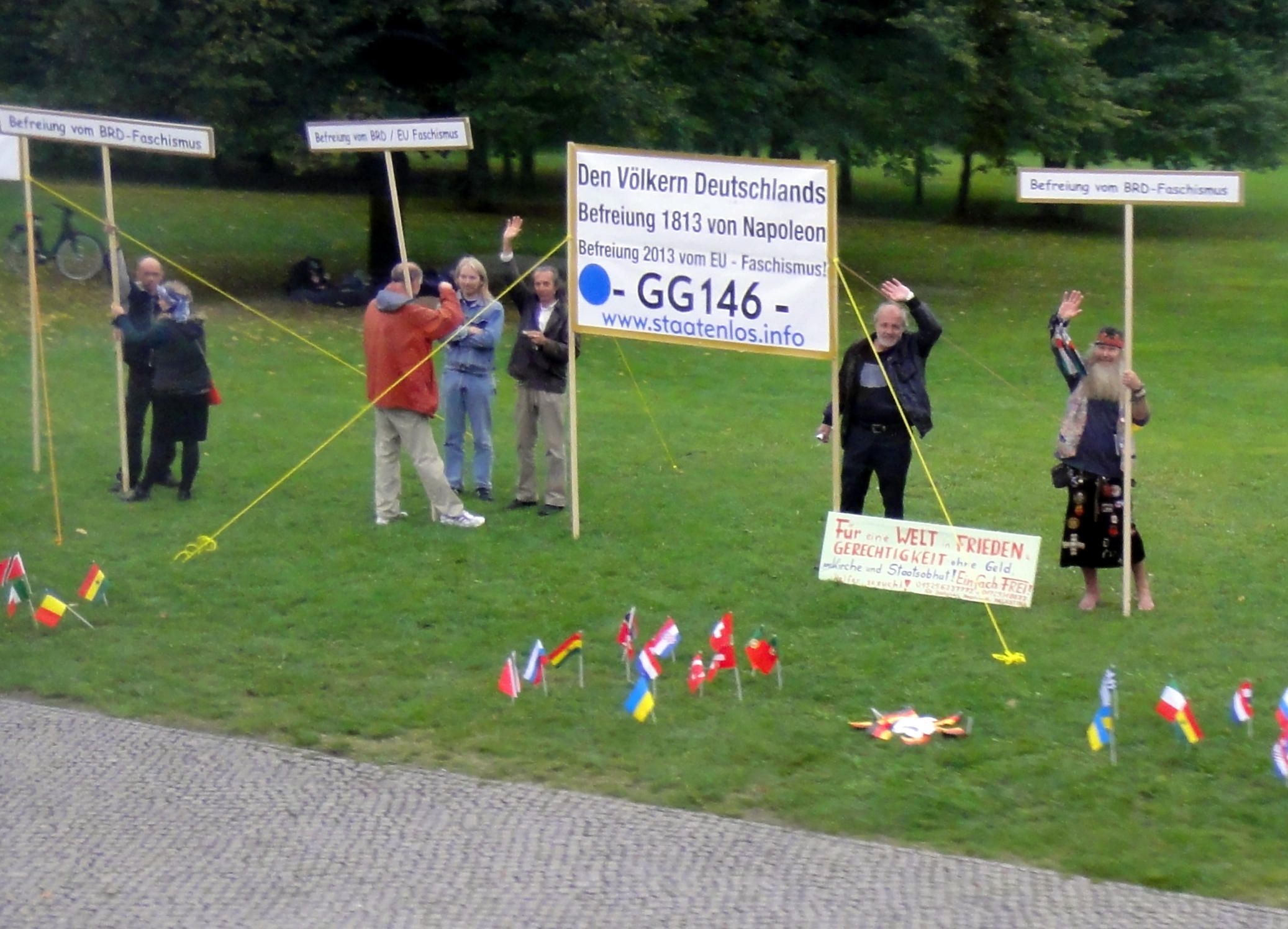Imagine the following: A person gets stopped by the German police for speeding, but when asked for their ID and driver’s licence, they not only refuse to show them in the first place, but it also turns out that their papers are fake and bear the name of the German Reich, something that has not existed since the end of World War 2. Further, the person insists that they are a citizen of the German Reich and that the policemen thus have no authority over them, as the Federal Republic of Germany which they are working for does not exist. Indeed, these so-called “Reichsbürger” (citizens of the Reich) are no uncommon occurrence any more, and there is a worrying trend towards radicalisation.
The beginnings of the Reichsbürger movement date back to 1985, when Wolfgang Ebel proclaimed the founding of his Provisional Imperial Government and appointed himself Reich Chancellor. Since then, a large number of offshoots following a similar ideology have been founded, revealing one of the greatest problems of the movement: as anyone can assume an imaginative and pompous title and claim sovereignty over Germany and the legitimisation of the leaders is sketchy at best, the movement has troubles uniting under one leader. The Sonnenstaatland website, which specialises in these kinds of movements, lists seven German Reichs alone – all with different leaders, seats of government, and constitutions.
A common theme in the ideology of these movements is the thesis that the German Reich continues to exist and that Germany still is occupied by Allied forces. The Federal Republic, then, is in truth a company, a financial agency controlled by the Allies, Big Capital or the Jews, depending on who you ask. This is further affirmed by misinterpreting the ambiguous name of the German Personalausweis, or personal identification, as “personnel identification“, insinuating that everyone who has a German ID is in truth an employee of aforementioned elusive financial agency. The goal of the Reichsbürger movement is to go back to the glory of days past, to a Reich in its old borders of before the Second World War.
The people participating in these organisations are often referred to alternatingly as esoterics with right-wing extremist tendencies, or right-wing extremists with esoteric tendencies. Indeed, the Reichsbürger movement is a melting pool of many different brands of people, including conspiracy theorists and Holocaust deniers, and quite a few of them have been declared not criminally responsible by reason of mental disorder in their many clashes with the German authorities.
Of course, not all of the Reichsbürger are merely motivated by a drive for independence – in many cases, it is about money. On the one hand, Reichsbürger usually opt not to pay taxes, fines and other public dues, yet are more than willing to accept benefits if the German state should pay them. Others may draw out eventual bankruptcies by refusing to cooperate with their creditors. On the other hand, the leaders of the imaginary states can make a lot of money by selling all sorts of fake identifications, licence plates, and driver’s licences to their gullible followers.
Fuelled by their contempt for any form of state authority, the Reichsbürger have long been a thorn in the side of German civil administration and judiciary. Since they neither respect laws nor the authority of the enforcers of German law, it is near impossible to reason with them. Many spend their lives within the illusionary borders around their home, without ever fulfilling their duties as German citizens. Officials’ attempts to contact them are answered by endless monologues on why the Federal Republic does not exist, with references to a sheer unlimited amount of documents, letters and outdated constitutions. Many have taken to obstructing the work of the German authorities as much as possible, by flooding them with requests, lawsuits, or even bogus debt claims – a veritable paper terrorism has been unleashed.

There are also signs of radicalisation. Compared to other German right-wing extremist groups, the Reichsbürger’s fetishism for weapons has been described as being the strongest. In 2014, a known Reichsbürger was arrested after trying to buy an AK-47 in Luxembourg using a fake ID from a supposed “Prussian Free State”. In March 2016, several Reichsbürger attempted to thwart a process against one of their own by causing a turmoil in the court room and stealing the record of proceedings in the process. Further, Reichsbürger are known for routinely trying to harass, blackmail or intimidate officials. In 2012, 15 to 20 men clad in the uniforms of the now-dissolved Reichsbürger vigilante group “Deutsche Polizei Hilfswerk” (DPHW) tried to arrest a bailiff in the line of duty.
While the German state cracked down hard on these groups after each of these excesses, it cannot do much against the routinely obstruction of the administration’s work. Due to its high fragmentation, it is also hard to collect data on the Reichsbürger movement. The Ministry of the Interior estimates their numbers to be in the thousands, with their numbers constantly rising, probably due to increased presence in the media and a general dissatisfaction with the powers that be. The federal State of Brandenburg alone counts more than 150 known Reichsbürger in its territory. As the revisionist ideology of the Reichsbürger movement inherently cannot be reconciled with the German Constitution, their groups have been deemed anti-constitutional, and four out of sixteen federal branches of the Federal Office for the Protection of the Constitution are currently observing the movement.
The rise of the Reichsbürger movement goes hand-in-hand with that of the far-right in Germany. It indicates a weakening of the State’s authority and the State monopoly on violence. While it is unlikely that the Reichsbürger movement will ever have success in reaching their goals, dealing with them will continue to cost the taxpayer exorbitant amounts of tax money.
Photo credits:
Dirk Ingo Franke, licensed under CC BY-SA 3.0









